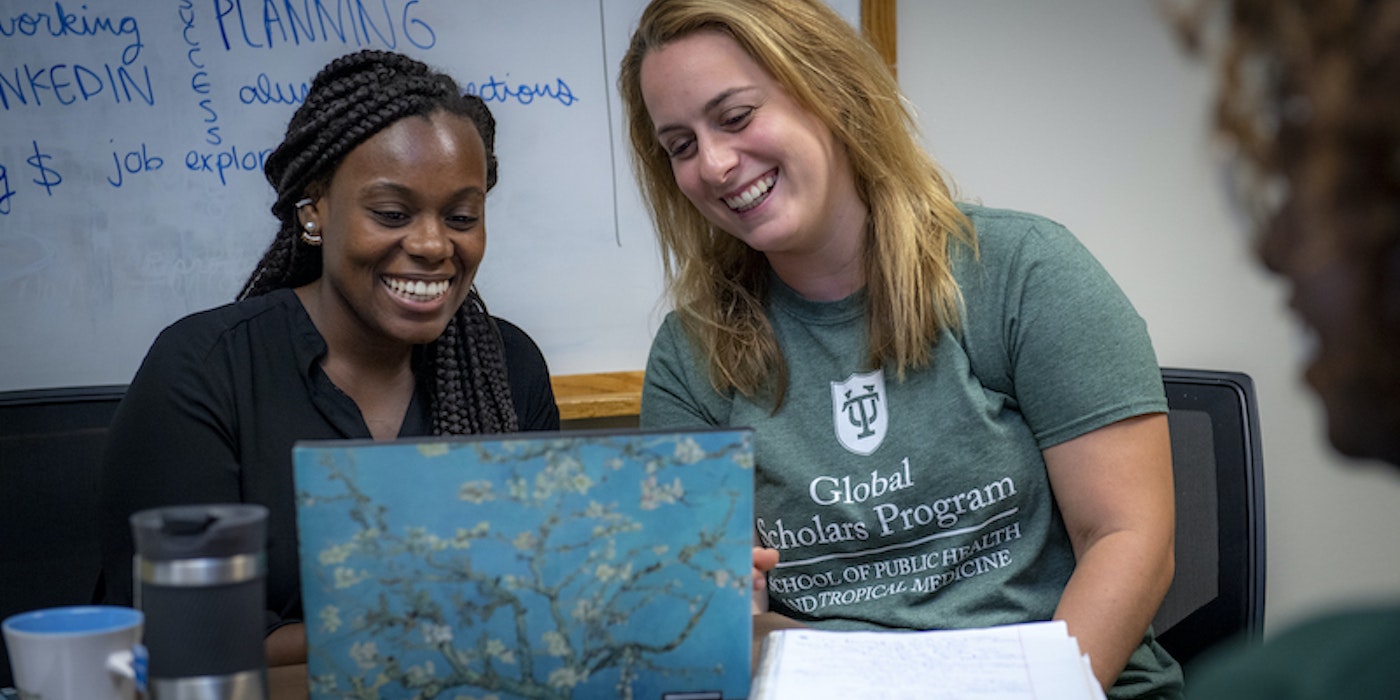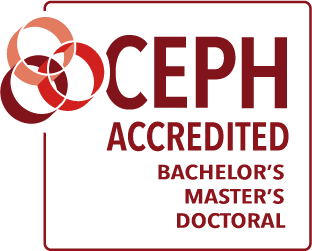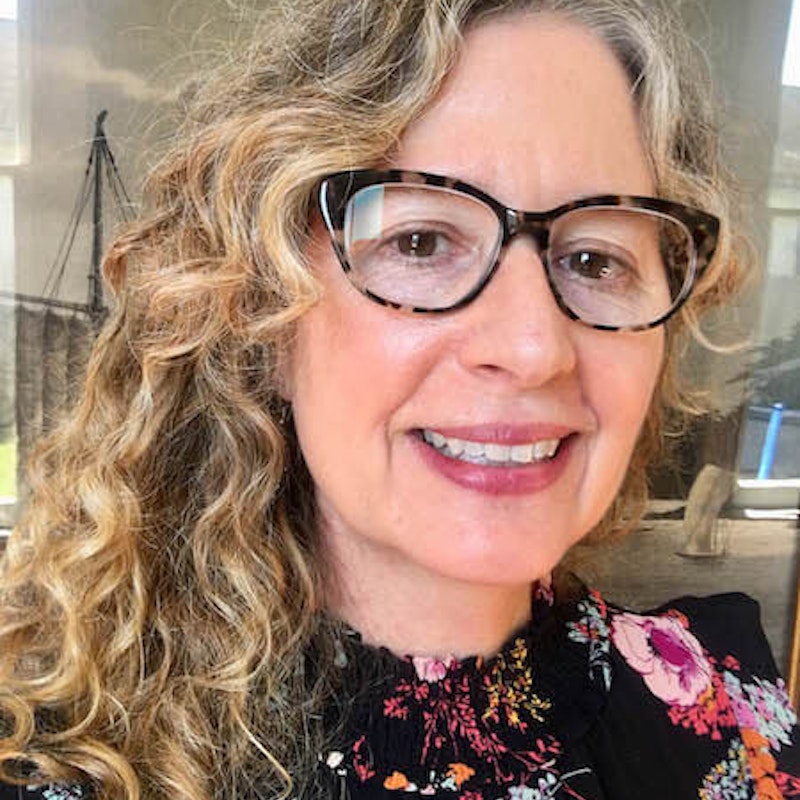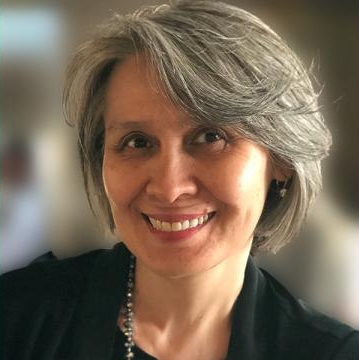Online MPH Program: Master of Public Health in Community Health Sciences Overview
Improved public health outcomes aren’t possible without strong, resilient communities that have the programming and resources to serve every individual. The Online Master of Public Health in Community Health Sciences from Tulane University will give you the skills to understand the behavioral aspects of community health, monitor and evaluate community-based programs, and implement community training methodologies.
Tulane University Celia Scott Weatherhead School of Public Health and Tropical Medicine is ranked No. 12 in the country because our attentive, industry-leading faculty truly care about empowering the next generation of community health professionals. It’s time for you to become an equity-minded leader that drives transformational solutions with an online MPH in Community Health Sciences from Tulane.

Accreditation

Tulane University Celia Scott Weatherhead School of Public Health and Tropical Medicine has been accredited since 1947, and all current programs are accredited by the Council on Education for Public Health (CEPH).
Online MPH Program at a Glance
Applied Practicum Experience
You’ll engage in a supervised practice experience to gain real-world skills that can be immediately applied to your career.
Connected Learning
You’ll complete an Integrated Learning Experience that demonstrates the synthesis of foundational and concentration competencies.
Analyze Real Communities
Conduct a public health analysis in a community you care about as part of your time in the program.
Expert leadership
Our award-winning, trailblazing faculty members are committed to cultivating the next generation of change-makers.
Interested in studying on our campus in New Orleans? Learn more about our on-ground programs on
the Tulane University Celia Scott Weatherhead School of Public Health and Tropical Medicine website.
Innovate Public Health Everywhere
The online MPH program is built for early to mid-career professionals ready to dedicate their lives to service in public health. From chronic to infectious disease, physical to mental health, and local to global health issues, students will learn how to assess and address health risks and their implications for social justice and meaningful change. Tulane online MPH students and alumni believe the health of the individual relates to the well-being of the community, and they are driven to innovate and create healthier communities around the world.
Online Public Health Master’s Program Benefits

Key Communication Skills
Learn to effectively communicate in both oral and written forms to a variety of audiences and purposes related to community health.
Solutions-focused
Our MPH program will give you the toolkit to analyze community environments, generate solutions, and apply solutions within communities.
Powerful Network
Join a powerful alumni network of Tulane WSPH grads who are passionate about collaborating towards improved community health outcomes.
Positive Career Outcomes
An unprecedented 99.7 percent of Tulane WSPH graduates are working, volunteering, or continuing their education within one year of graduation.
What You Will Learn
The 45-credit online MPH program gives you the applicable knowledge to design and implement theoretically informed and culturally appropriate interventions by applying public health theory and principles to a diverse set of problems at the community level.
Our leadership-focused online community health degree is fully accredited by the Council on Education for Public Health. During your time in the program, you’ll become versed in areas such as:
Epidemiology
Learn how diseases become public health crises.
Behavioral Science
Understand what motivates individuals to make healthier choices.
Biostatistics
Use data to evaluate and address health risks.
Management
Become an expert communicator. Learn to influence leaders and policymakers in the interest of public good.
Curriculum*
The online MPH program requires a total of 45 credits that include:
SPHTM Foundational Requirements
15 Credit Hours
- SPHL 6020 Foundations of Public Health (3)
- SPHL 6070 Health Systems Policy and Management (3)
- SPHL 6080 Design Strategies in Public Health (3)
- SPHL 6060 Epidemiology for Public Health (3)
- SPHL 6050 Biostatistics for Public Health (3)
CHS Program Course Requirements
15 Credit Hours
- SBPS 6030 Social and Behavioral Aspects of Health (3)
- SBPS 6340 Monitoring and Evaluation of Health (3)
- SBPS 6700 Social Innovation Tools (3)
- SBPS 7010 Health Communication Theory and Practice (3)
- SPHL 6100 Health Equity (3)
Elective Coursework
15 Credit Hours
- Any online course offered through the School of Public Health and Tropical Medicine.
Applied Practice Experience
Applied Practice Experience (0 Credit Hours)
Integrative Learning Experience (0 Credit Hours)
- The Applied Practice Experience (APE or practicum) demonstrates the student’s attainment of program competencies through applied work. Practicum is the opportunity to demonstrate at least five competencies (foundational and programmatic) in a practice setting. Students will work with advisors to identify practice activities for the practicum; the practicum may be one large activity or multiple experiences. The student will produce a written product from the activities and outcomes; the report will also include a reflection of the way the student applied the competencies in practice. The practicum should be useful to the practice setting/organization.
- The Integrative Learning Experience (ILE) demonstrates the synthesis of the foundational and program competencies. Students will select five of the foundational and program competencies that will be applied in case studies and scenarios. A high-quality written report will result from compiling group activities and assignments that may include: policy brief, evaluation report, press release, communication speaking points, legislative updates, or other products that would be of value to their employer or public health practitioners.
*Curriculum information subject to change.
Apply Your Passion To Practice
You can see the change you want to make in your community. But first, you have to get the applicable skills to make an impact. At Tulane, our Applied Practicum Experience (APE) requirement allows you to develop real-world competencies in a supervised practice setting of your choosing.
You'll embark on your APE after you complete the foundational MPH courses, and you'll demonstrate your mastery of five key competencies: three foundational competencies outlined by the CEPH and two competencies outlined by program faculty.
The APE can be completed in your local area, and you can choose to work at your current employer as long as your practicum role is different from your current job — perfect for career changers or shifters. If you need assistance with placement, our dedicated team is here to help you find a match that aligns with your community health career goals.
| Scholarships |
| Looking for scholarship opportunities? If you complete the application by the priority deadline and meet our criteria, you could receive $20,000 or more in merit-based awards. More than half of new students receive some form of merit-based scholarship. |
Careers in Public Health
Earn your online public health master's to access opportunities that multiply each day. The U.S. Bureau of Labor Statistics predicts the healthcare and social assistance sector will create nearly 4 million jobs by 2026 — about a third of all new jobs. Prepare to serve in a variety of settings and roles, including*:
Social and Community Service Manager
Median Annual Salary: $74,000*
Medical Health and Services Managers
Median Annual Salary: $101,430*
*Source: U.S. Bureau of Labor Statistics, 2021
Upcoming Webinars
Check back soon for more upcoming events.
Our renowned faculty brings real-world experience to the classroom.

Thomas A. LaVeist, PhD
Dean of the School of Public Health and Tropical Medicine, Dr. Thomas LaVeist, is a nationally renowned public health expert and thought leader. As a researcher, Dr. LaVeist is primarily focused on the social and behavioral factors that impact health outcomes, particularly examining health disparities between various ethnicities and how social policy affects the quality of life for African Americans. Through his work, Dr. LaVeist hopes to develop an orienting framework for policies and interventions that close race disparities in health-related outcomes. Dr. LaVeist also holds the Weatherhead Presidential Chair in Health Equity.

Gretchen Clum
Having worked primarily with vulnerable populations like women who have experienced violence and HIV positive youth, Dr. Gretchen Clum has focused the bulk of her research on the intersections between stressful events, mental health, and health outcomes. Dr. Clum hopes to develop a deep understanding of how traumatic life events affect health outcomes so that she might develop and test intervention strategies that might curb long-term negative effects of such events. Recently Dr. Clum has expanded her research to examine potential interventions to improve the health of women and adolescents by analyzing social and behavioral factors that influence nutrition and physical activity.

Maya Begalieva
Dr. Maya Begalieva’s educational background includes internal medicine, public administration, and public health. Practice experiences include working as a physician specializing in cancer diagnostics; implementing health programs and relief operations with the International Federation of Red Cross (IFRC); working for the United Nations Development Program; and serving as the external affairs officer for The World Bank. Areas of interest include obesity, chronic disease biology and prevention, wellness, and health promotion. Dr. Begalieva teaches both undergraduate and graduate level courses. Currently, she teaches social and behavioral aspects of global health and concepts of health and wellness.
Celia Scott Weatherhead School of Public Health and Tropical Medicine
As stewards of the first school of public health in the United States, Tulane University Celia Scott Weatherhead School of Public Health and Tropical Medicine cultivates independent thinkers, innovative leaders, fierce advocates, and accomplished scholars. From the neighborhoods of New Orleans to communities worldwide, we conduct research and collaborate with our partners to ensure that all of humanity has an equitable opportunity to be healthy and pursue optimal well-being.

Unlock opportunities in public and private sectors to define your career path.
Frequently Asked Questions
Students enrolled in Tulane’s Online MPH, Online MHA, and Online MSPH programs may only take online courses at this time.
Yes! The Online MPH, Online MHA, and Online MSPH programs blend self-paced asynchronous coursework with live, synchronous sessions for discussions, case studies, and exercises that allow students to hone their acquired knowledge and skills.
All students are required to supply their own desktop or laptop computers throughout the program. Click here to review our detailed recommendations for technology. In addition, students who do not own a printer may want to consider purchasing a printer to produce hard copies of course materials.
With guidance from program faculty and staff, all Online MPH, Online MHA, and Online MSPH students will complete an Applied Practice Experience, such as a Practicum or Residency, prior to graduation.